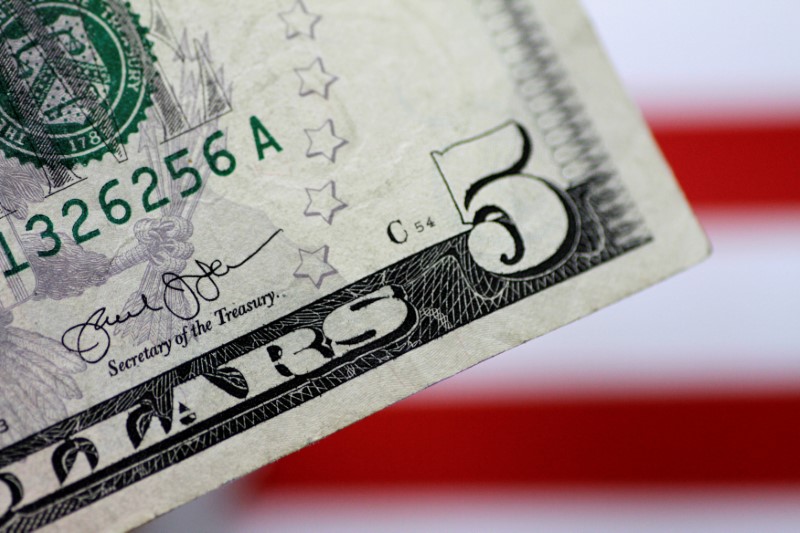By Peter Nurse
Investing.com - The dollar traded lower in early European trade Monday, as positive news about U.S. President Donald Trump’s health resulted in traders seeking out more risk to the detriment of the safe haven currencies.
At 2:45 AM ET (0645 GMT), the U.S. Dollar Index, which tracks the greenback against a basket of six other currencies, was down 0.1% at 93.860, while USD/JPY rose 0.2% to 105.58, rebounding after posting a one-week low of 104.95 on Friday.
Elsewhere, EUR/USD rose 0.1% to 1.1724, while the risk-sensitive AUD/USD climbed 0.2% to 0.7172.
Doctors on Sunday insisted President Trump was doing well and could be discharged from his military hospital as soon as Monday, a conclusion that was boosted by the president taking part in a motorcade to acknowledge well wishers gathering outside the hospital.
Monday morning has begun with a more positive risk tone, said Ray Attrill, head of foreign-exchange strategy at National Australia Bank in Sydney, in a Bloomberg report, with the possibility of President Trump’s release from hospital countering fears the U.S. election might not take place on schedule.
Adding to the general market confidence is the idea that the likelihood of a new stimulus package may be improving as President Trump’s infection brings the virus very close to Capitol Hill, prompting both parties to see the urgency of responding to its impact.
That said, “we still find the prospects of a big fiscal deal very slim ahead of the election,” said analysts at Nordea, in a research note, “first as the political environment remains intoxicated by the Republican turbo-nomination of Amy Barrett for the vacant seat in the Supreme Court, but secondly also as large parts of the U.S. economy still holds a re-opening momentum.”
Elsewhere, sterling has retained most of the gains it saw over the weekend after British Prime Minister Boris Johnson and the head of the EU's executive, Ursula von der Leyen, agreed to step up negotiations on a post-Brexit deal.
The final round of Brexit trade negotiations are seen as key for the currency as the expiry of the transition period at the end of December approaches.
“While the outlook for GBP does not look negative for next week, we continue to see the GBP pay off as asymmetric, skewed to larger losses should the trade negotiations fail vs limited gains should a light trade deal be agreed,” said analysts at ING, in a research note.
At 2:55 AM ET, GBP/USD traded 0.1% lower at 1.2922, while EUR/GBP gained 0.2% at 0.9072.
